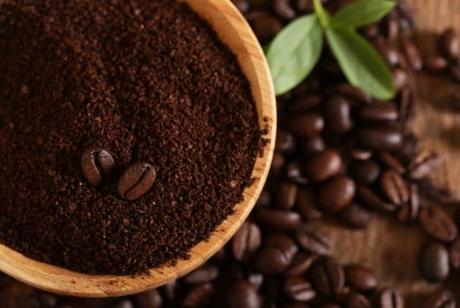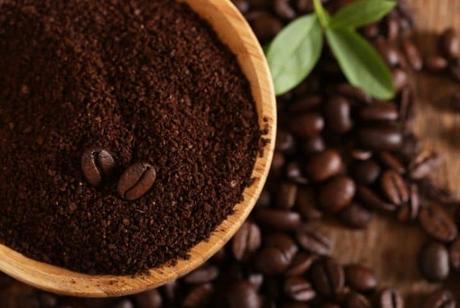Can You Compost Coffee Grounds?
Coffee! This century-old drink has become so beloved by millions all over the world and in the US alone, over 50% of the population aged 18 and above, drink coffee. This represents 150 million daily drinkers in one single country.
However, have you ever asked yourself, what happens to the coffee grounds after brewing your favorite beverage? The majority compost them, which is okay, and this article describes the effects of composting coffee grounds

Oh, yes! Compositing coffee grounds is the greatest way of making use of something that would otherwise end up in landfills. Composting coffee grounds helps to add nitrogen to your compost pile. Not only can you compost coffee grounds, but you can also compost coffee filters, and is as easy as throwing the used coffee grounds onto your compost pile. Most experts recommend a carbon to nitrogen ratio of 25 or 30 to 1 for the best compost. With good nutrient ratios, compost breaks down quickly without intense odors.
Since most kitchen waste is high in nitrogen, you have to add brown material, such as dry leaves or sawdust, to balance the pile and avoid a smelly compost pile. Coffee grounds, however, are almost perfect. They have a carbon to nitrogen ratio of 20 or 25 to 1, meaning they compost beautifully without much fuss.
According to research by scientists who studied the effect of coffee grounds on compost piles, they found that compost piles that are 40% coffee grounds, produced the least greenhouse gasses and made the highest quality compost.
Can You Put Coffee Filters in Compost?
Definitely! As already mentioned, not only can you compost coffee grounds, but you can also compost coffee filters, which is as easy as throwing the used coffee grounds onto your compost pile. Coffee filters are considered a brown material, meaning they are rich in carbon, an essential element in the carbon-to-nitrogen balance.
These coffee filters will disintegrate quickly as long as the pile of compost is active with critters and worms, and is kept moist. Aside from adding brown matter to your compost, coffee filters are also known to help control odor and increase the oxygen levels, leading to a healthier and easier to maintain a compost pile
However, you have to confirm the quality of the paper, because although most paper products are fine for composting, some are certainly not. Paper filters are completely compostable but if your filters are made of a different material, or if they’re lined in some kind of coating, you’ll want to reconsider.
Are Coffee Grounds Good for the Garden?
When choosing to use used coffee grounds for the garden, you do not have to compost them, but it is advisable. The majority of the people choose to place the used coffee grounds straight onto the soil and use it as fertilizer. The problem with this approach and why it is advisable to compost them is that although they add nitrogen to your compost, they do not immediately add the nitrogen to the soil.
Coffee grounds act as fertilizer, adding organic material to the soil, and improving drainage, water retention and aeration in the soil. The used coffee grounds also help microorganisms that are beneficial to plant growth by helping the plant thrive as well as attracting earthworms which are beneficial to the soil and the crops in general.
There are also some acid-loving flowers, shrubs and trees such as caladium, azaleas and magnolia, respectively, which could benefit from coffee grounds.
Unwashed or fresh coffee grounds are acidic and can lower the pH or raise the acid levels of the soil, helping these plants and more. Used coffee grounds that are rinsed have a near-neutral pH of 6.5, and cannot affect the acid levels of the soil. To use coffee grounds as fertilizer, work the coffee grounds into the soil around your plants. Leftover diluted coffee works also work the same way
Aside from the nitrogen, coffee grounds also provide the soil with calcium, potassium, iron, phosphorous, magnesium and chromium, all key minerals for plant growth. These nutrients and more might be absorbed away from the soil by growing plants and as such, coffee grounds are essential in providing such nourishment to the soil and consequently to the plants. These minerals also absorb heavy metals that could contaminate the soil. Moreover, coffee grounds could help attract worms that are vital to the garden.
Do Coffee Grounds Deter Slugs?
Oh, yes! Coffee grounds can deter slugs and snails. By simply spreading the coffee grounds on your garden, you will be keeping slugs, ants and snails off your garden.
These guys are not fond of coffee and its strong smell and gently sprinkling a thin line of coffee grounds will create a barrier that the slugs will not cross.
Unfortunately, the coffee remains potent for a few days before decomposing and feeding the plants. As such, you have to sprinkle the coffee grounds on the garden after a while, to keep the slugs away from your lettuce, and melons, among other plants and vegetables. Coffee grounds are an effective pesticide
10 Creative Ways to Use Old Coffee Grounds
Aside from being composted, used in the garden as fertilizer or for deterring slugs, coffee grounds can be used creatively in the following ways:
1. Deterring insects and pests
The caffeine and diterpenes found in coffee are highly toxic to insects. As such, you can use old coffee grounds to repel bugs. Simply set out bowls of grounds or sprinkle them around outdoor seating areas. This way, you will repel insects and pests such as mosquitos, fruit flies, and beetles, among others.
You can also achieve the same in your garden by scattering the coffee grounds around your plants, creating a barrier that slugs and snails do not like to crawl over. Coffee grounds also have the capability of chasing away fleas since they cannot stand the smell of coffee. This could help treat the flea problem in pets
2. Growing mushrooms
Oyster mushrooms are incredibly versatile and can grow on a variety of substrates, including used coffee grounds. Growing a small batch of oyster mushrooms is incredibly simple, and you only need a tiny bit of counter space to grow huge crops of delicious mushrooms. Cultivating oyster mushrooms on spent coffee grounds is a simple and enjoyable home activity for all ages, resulting in some good edible mushrooms to boot.
3. Deodorising your house
Coffee grounds are incredible at soaking up odors. They contain nitrogen that eliminates the foul-smelling sulfur gas from the air when it is combined with carbon. Put some dried used grounds in a shallow jar and place them at the back of your fridge. It won’t mask the odor of anything that severely spoils, but it helps keep things smelling fresh in there.
You can also toss a couple of tablespoons of grounds down the drain, followed by two drops of soap and boiling water. doing this breaks down the grease, cleans the pipe, and reduces drain odors. However, do not do this more than a couple of times per month though to avoid accidental clogging.
4. Scouring your pots and pans
The coarse texture of coffee grounds makes them ideal for scrubbing hard-to-clean kitchen utensils. You can use them to scrape your dishes clean and remove caked-on food from pots and pans. Simply sprinkle the grounds directly onto your pots and pans and scrub as usual. Be sure to rinse the pots thoroughly afterward.
5. Exfoliating your skin
The coarse particles in coffee grounds work excellently as an exfoliating agent, helping remove dirt and dead cells from the skin. All you need to do is simply mix coffee grounds with a little bit of water or coconut oil and scrub them with your hands directly onto your face and body.
They could also be mixed with a small amount of honey and used as an exfoliating lip scrub. To add to this, the caffeine in coffee grounds has potent antioxidant properties that help protect the skin from sun damage
6. Repairing scratched furniture
Wooden furniture could easily get scuffed, scratched or dinged. Coffee grounds are an excellent, chemical-free, easy and inexpensive fix to that. First, make a thick paste with used coffee grounds and water. Then rub the paste into the scratch using a cotton swab, and allow it to sit for 5 to 10 minutes and then wipe with a cotton rag.
Doing this helps buff out the scratch and conceals it by dying the exposed wood a dark-brown color. Continue to dab coffee into the scratch using a cotton swab until the desired color is achieved, waiting a few hours between applications
7. Cleaning the fireplace
Cleaning the ashes out of a fireplace can be an incredibly messy business, and the wood ash can poof into the air easily covering every surface in the room, not forgetting filling your lungs. By scattering used coffee grounds over the ashes, you can weigh them down and prevent smoke clouds from forming.
This not only makes the ashes easier to remove, but it also keeps dust from escaping and traveling to other parts of the room. The coffee helps bind up the smallest ash particles and allows you to scoop out the fireplace ash with less mess
8. Reducing the appearance of cellulite
Cellulite is a health condition that gives the skin a dimpled, lumpy appearance and affects up to between 80 and 90% of adult women. It occurs when fat deposits push through the connective tissue under your skin and are commonly seen in the buttocks and thighs.
When caffeine, such as that in coffee grounds, is applied topically, it may help break down such fat and increase blood flow to the area, thereby decreasing the appearance of cellulite. Simply mix the grounds with water or coconut oil and scrub for 10 minutes twice weekly on any areas affected by cellulite
9. Stimulating hair growth and strip build-up
Shampoos and styling products can often leave residue behind that dulls and weighs down your hair. Exfoliating your scalp with coffee grounds can greatly help remove build-up and dead skin cells. More to this, is that there are several test-tube studies that have found that caffeine, such as that in used coffee grounds, stimulates human hair growth.
They are published in the International Journal of Dermatology, the International Journal of Trichology, and the British Journal of Dermatology. Similarly, human and animal studies have found that applying caffeine to the skin increases blood flow and accelerates hair growth.
Before you shampoo, simply grab a handful of coffee grounds and massage them into your scalp and hair for a few minutes. Then wash and rinse as you normally would. Do this one to two times per week, or as needed
10. Tenderising meat
Meat contains muscle fibers and proteins that can give it a tough consistency. Tenderizing meat helps break them down, resulting in a softer texture. Coffee contains natural acids and enzymes, that make it especially effective at tenderizing meat. The acidic nature of coffee can also help enhance the flavor of the meat.
Simply add used coffee grounds to your favorite dry-rub recipe and apply the rub to the meat two hours before cooking. The grounds will get cooked onto the meat and form a dark, crispy crust. Alternatively, you can rebrew used grounds to make coffee, allow it to cool and use it to marinate meat in the refrigerator for up to 24 hours before cooking


